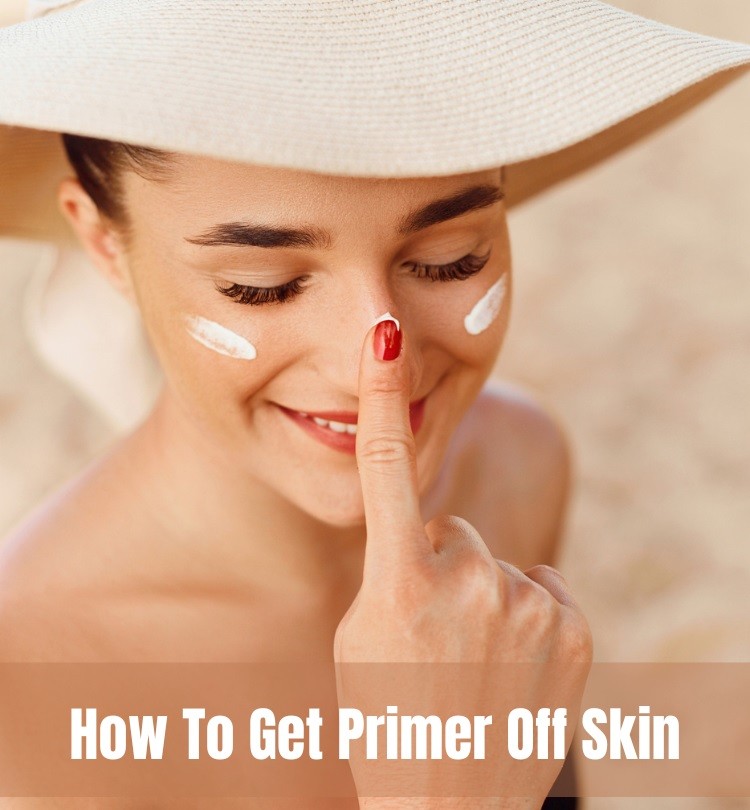This post contains affiliate links.
Updated on April 13, 2025
To get primer off skin, use a gentle cleanser and warm water. Rinse thoroughly.
Primer is a crucial makeup product that preps your skin for a smooth, flawless application of foundation or other makeup products. If you accidentally get primer on your skin and can’t seem to remove it, don’t worry! Fortunately, removing primer from the skin is a piece of cake, and you don’t need any complicated methods or materials to do it.
With just a gentle cleanser and warm water, you can quickly and easily remove any primer residue from your face or body. We’ll discuss some easy and effective ways to get primer off your skin to give you a perfect makeup base.
Contents
Primers And How They Affect Skin
Primers are a popular cosmetic item used to prep the skin for makeup application and provide a smooth and flawless finish. If not used or removed properly, they can cause skin irritation and other issues. In this section, we’ll discuss the basics of primers and their impact on the skin.
What Are Primers?
Primers are products that are applied to the skin before makeup to create a smooth and even surface for better makeup application. They can come in different formulas, such as silicone-based, water-based, and oil-based. The function of a primer is to:
- Minimize the appearance of pores and fine lines
- Help makeup last longer
- Control oil production
- Even our skin tone
Types Of Primers
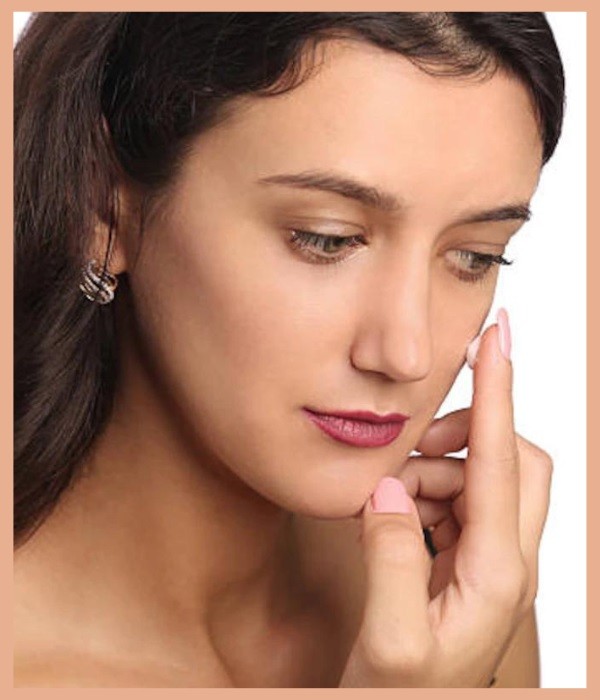
There are different types of primers that cater to various skin types and makeup preferences. Here are some common types of primers and their benefits:
- Color-correcting primers: These primers help balance out skin tone by neutralizing redness, sallowness, or dullness. They come in various colors, such as green, purple, and peach, to address specific skin concerns.
- Hydrating primers: These primers are best for dry and dehydrated skin as they provide an extra boost of moisture to the skin, helping it look plump and healthy.
- Mattifying primers: If you have oily skin, mattifying primers can help control shine and keep your makeup in place for a longer time.
- Illuminating primers: These primers are infused with light-reflecting particles that give the skin a subtle glow and radiance, making it look dewy and fresh.
Related: What Can I Use Instead Of Primer?
How Do Primers Stick To Skin?
Primers contain ingredients that help them adhere to the skin, such as silicone or glycerin. These ingredients create a smooth surface for makeup application and help it last longer. If you don’t remove your primer properly, it can clog your pores and cause skin irritation.
Tips for removing primer:
- Use a gentle cleanser to wash off the primer thoroughly
- Don’t scrub too hard, as this can lead to skin damage
- Use a soft cloth or sponge to remove any remaining product
- Follow up with your usual skincare routine to keep your skin healthy and clean
What Happens If You Leave Primer On Skin For Too Long?
Leaving primer on the skin for too long can cause clogged pores, irritation, and breakouts. Moreover, if you apply other products on top of the primer, it can disrupt your skin’s natural function and affect its ph level. It’s essential to remove the primer before sleeping and ensure that your skin is properly cleansed and moisturized.
Primers are a useful addition to a makeup routine, but proper usage is necessary to avoid skin issues. Choose the right primer for your skin type, remove it thoroughly, and give your skin some TLC to maintain its health and vitality.
5 Effective Ways To Get Primer Off Skin
Are you having a hard time removing primer off your skin? Fret not, as we’ve compiled five effective ways to get primer off your skin, regardless of your skin type. Just keep on reading to find the solution that suits you best.
Method 1: Use A Makeup Remover
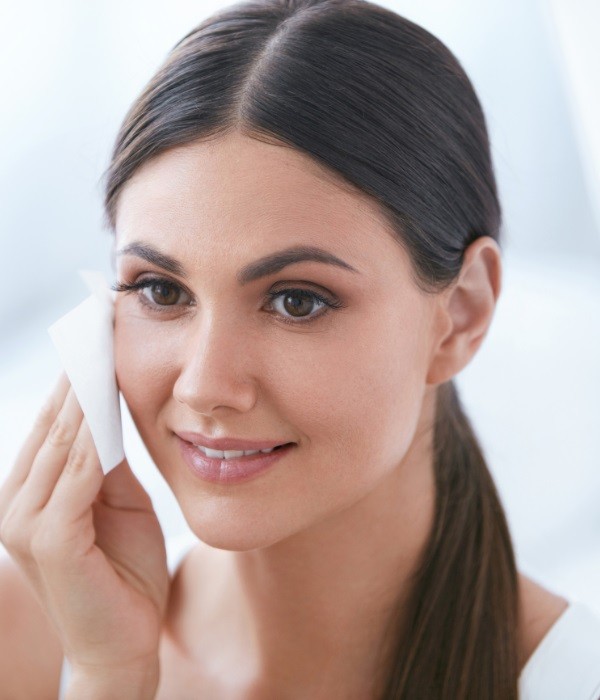
Using a makeup remover is a hassle-free way to get primer off your skin quickly. Follow these steps:
- Soak a cotton ball or pad with a makeup remover.
- Gently rub the cotton ball or pad onto your skin where the primer is applied.
- Repeat this process until all the primer is removed.
Related: What Can I Use Instead Of Nail Primer?
Method 2: Use Coconut Oil
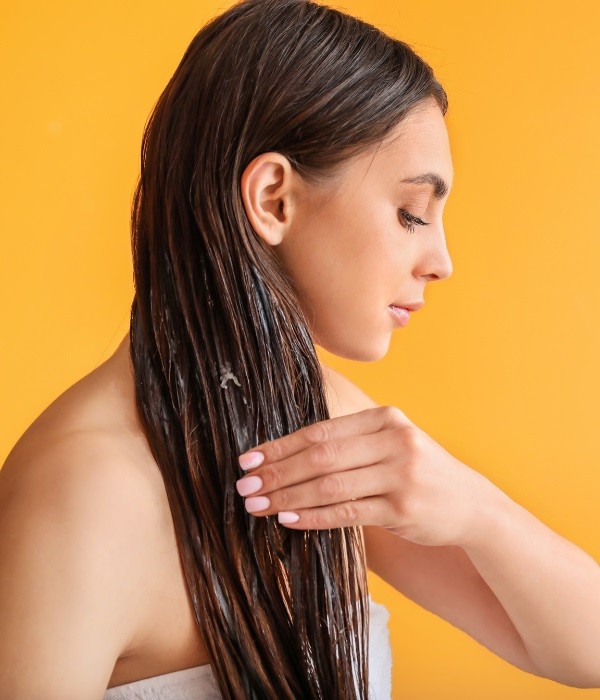
Coconut oil is a natural and affordable way of removing primer from your skin. Here’s how:
- Take a few drops of coconut oil in your hand.
- Apply the oil onto the areas where the primer is applied.
- Massage gently with your fingers to help break down the primer.
- Rinse your skin with warm water and a mild cleanser to remove any excess oil.
Method 3: Try Baby Oil
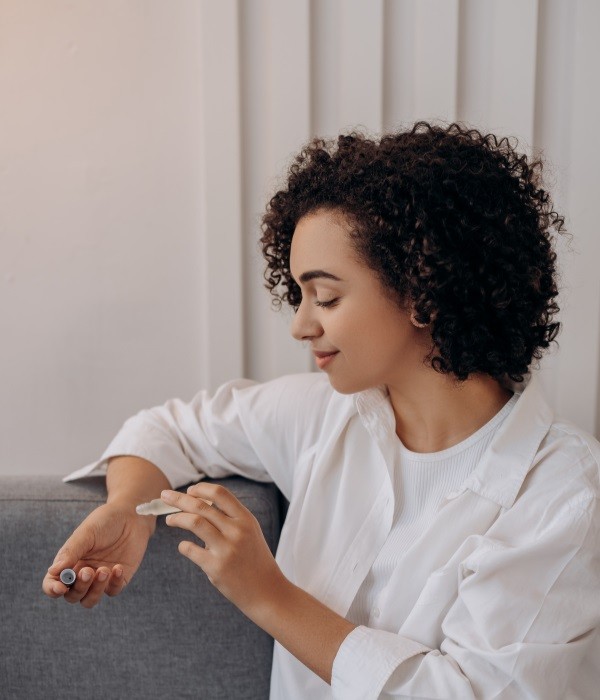
Using baby oil is another inexpensive way of getting primer off your skin. Here are the steps:
- Apply a few drops of baby oil onto the area where the primer is applied.
- Massage gently with your fingers in circular motions to break down the primer.
- Use a warm and damp washcloth to wipe away the oil and primer residue.
Method 4: Use Baking Soda And Water
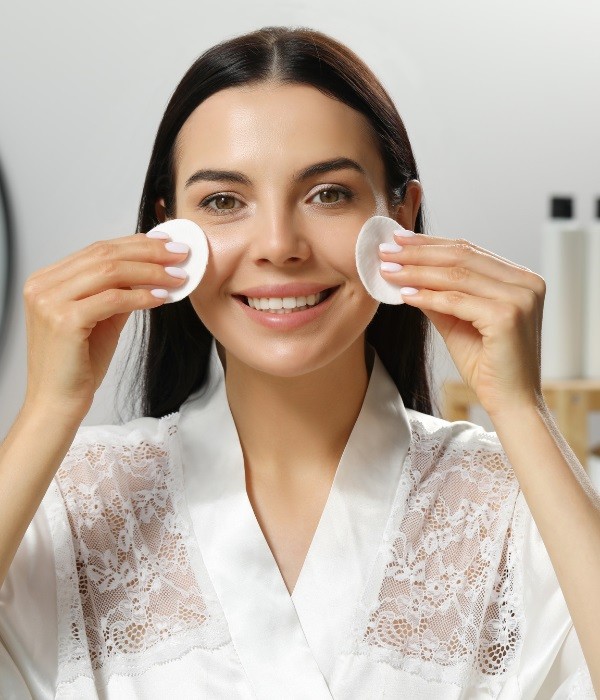
Baking soda and water are non-abrasive and can be used to remove primer from your skin. Follow these steps:
- Mix baking soda and water to create a paste-like consistency.
- Apply the mixture onto the areas where the primer is applied.
- Rub the mixture with gentle circular motions using your fingers.
- Rinse your skin with warm water and pat dry with a clean towel.
Method 5: Use Micellar Water
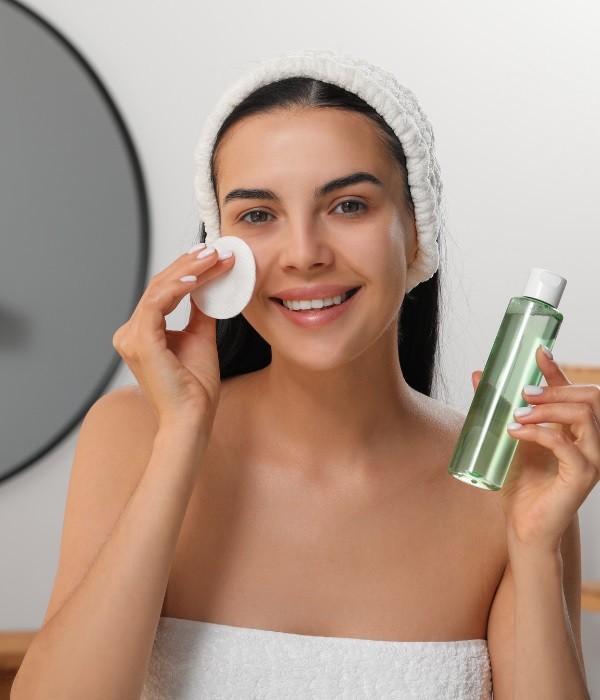
Micellar water is a multi-tasking product that can be used as a cleanser as well as to remove primer. Here’s how you can use it for primer removal:
- Take a cotton pad and soak it in micellar water.
- Rub the cotton pad all over the area where the primer is applied.
- Repeat the process until all the primer is removed.
Related: Can You Use Moisturizer As Primer?
Best Methods For Each Skin Type
Now, let’s explore the best methods for each skin type:
Oily Skin
- Method 1: Use a makeup remover that is suitable for oily skin.
- Method 4: Use baking soda and water to remove any excess oil.
Dry Skin
- Method 2: Use coconut oil to moisturize the skin while removing the primer.
- Method 3: Try baby oil and a damp washcloth to gently remove the primer.
Sensitive Skin
- Method 5: Use micellar water that is free of fragrance and alcohol to avoid irritation.
- Method 1: Use a makeup remover that is specifically designed for sensitive skin.
Combination Skin
- Method 4: Use baking soda and water to control the oily areas of the skin.
- Method 3: Try baby oil on the drier areas of the skin and wash with warm water and a mild cleanser.
By using these methods, you can easily remove primer from your skin and continue with your makeup routine with ease. Remember to follow these steps carefully, and always take care of your skin after removing primer by moisturizing it with a good quality moisturizer.
Additional Tips For Removing Primer From Skin
Removing primer from the skin can be a real hassle, especially when it’s stubbornly clinging to your skin. Fortunately, we’ve got some additional tips for ensuring the primer doesn’t stick around any longer than necessary.
Do Not Use Soap
Using soap to remove your primer is a big no-no, as it can be too harsh on your skin and cause dryness. Instead, opt for a gentle cleanser that is specifically formulated for sensitive skin.
Additionally, it’s essential to avoid using hot water when cleansing your skin, as it can strip away the skin’s natural oils, causing further dryness. Use lukewarm water instead.
Use Warm Water
Use warm water to rinse your face after cleansing to remove any residual primer. Warm water will help to loosen up the primer, making it easier to remove.
Use A Gentle Exfoliant After the Removal
Once you’ve removed the primer from your skin, it’s important to use a gentle exfoliant to remove any remaining traces.
Exfoliating your skin will help to remove any debris and dead skin cells, leaving your skin feeling fresh and smooth. Avoid harsh scrubs that can cause irritation and damage to your skin.
Moisturize Your Skin Afterwards
It’s important to moisturize your skin after removing the primer to prevent it from becoming dry and irritated.
Using a gentle, hydrating moisturizer will help to soothe and nourish your skin, leaving it feeling soft and supple. Opt for a moisturizer that is suitable for your skin type to ensure the best results.
By following these simple tips you can ensure that you remove primer from your skin effectively and without causing any damage or irritation. Remember to always be gentle and use products that are suited to your skin type, and you’ll be on your way to having beautiful, healthy skin in no time!
Frequently Asked Questions For How To Get Primer Off Skin?
How Do You Remove Primer From Skin Quickly?
Gently rub oil or makeup remover over the primer and wash your skin with warm water.
Can Vaseline Remove Primer From Skin?
Yes, apply Vaseline on the primer. Let it sit for 5 mins and then remove it with a tissue.
Is It Safe To Use Acetone To Remove Primer From Skin?
Acetone can be harsh on the skin, avoid using it to remove the primer. Use oil or makeup remover instead.
What Are Some Other Methods To Remove Primer From Skin?
Natural oils like coconut or olive oil, micellar water, or baby oil can also effectively remove the primer.
Can Leave Primer On Skin For Too Long Cause Harm?
Leaving primer on the skin for an extended period may cause skin irritation, but it is generally safe.
Conclusion
Getting primer off your skin can be a frustrating chore, but thankfully there are several tried and true methods to help you. Whether you prefer a natural remedy or a store-bought solution, the key is patience and persistence. Starting with gentle options such as olive oil or baby oil can lessen any harsh reactions and slowly work to dissolve the primer.
For a more stubborn primer, a combination of rubbing alcohol and soap or micellar water can be effective. It’s important to avoid vigorously scrubbing the skin or using harsh chemicals that can cause irritation or damage. Finally, taking preventative measures such as washing your hands immediately after applying primer, using less product, or switching to a water-based primer can help reduce the risk of future removal struggles.
By following these tips and tricks, you can easily remove primer from your skin and get back to feeling confident and comfortable.

